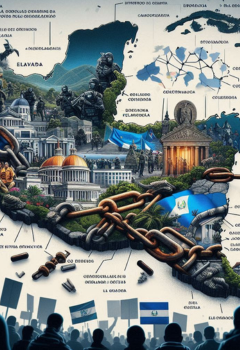NORMALIZING EXCEPTION: INTERNATIONAL LAW PERSPECTIVES ON DEROGATION OF GUARANTEES IN EL SALVADOR, HONDURAS, AND ECUADOR TO COMBAT ORGANIZED CRIME
DOI:
https://doi.org/10.5377/lrd.v45i1.19387Keywords:
Human Rights, State of Exception, Organized Crime, Firm Hand, Constitutional GuaranteesAbstract
From El Salvador, the old idea that implementing mano dura policies can be effective to combat organized crime is being exported. Although old, the idea that El Salvador is exporting has an attractive tactic: the application of exception regimes that broadly suspend constitutional guarantees. Honduras and Ecuador, with similar but different citizen security issues, attempted to apply president Bukele’s Plan Control Territorial and failed. This article tries to answer two of the many questions that arise from this model: does sustained regimes of exception violate international human rights law? And why didn’t it work in Honduras and Ecuador?
Downloads
817

Downloads
Published
How to Cite
Issue
Section
License
Copyright (c) 2024 Instituto de Investigación Jurídica

This work is licensed under a Creative Commons Attribution-NonCommercial 4.0 International License.
® Instituto de Investigación Jurídica



